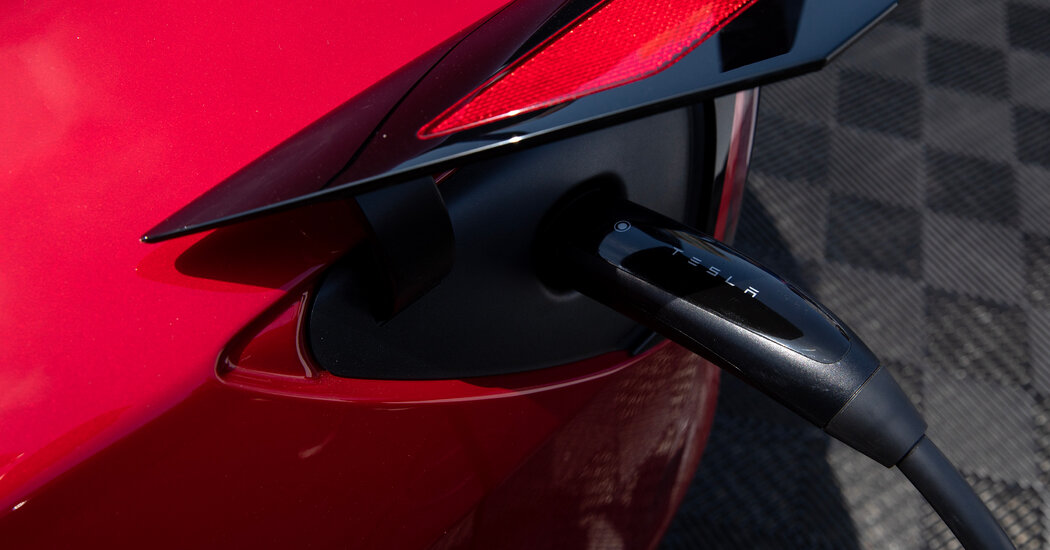With cars, the stakes are much higher: they cost tens of thousands of dollars, and replacing gasoline cars with electric models is key to tackling climate change.
Some industry officials fear the messy business battle over charging technology could discourage people from buying electric cars.
“It creates confusion,” said Oleg Logvinov, North America chair of the Charging Interface Initiative. The organization is a forum for manufacturers, equipment suppliers and charging companies using Tesla’s main rival to the standard, known as the Combined Charging System.
Buyers, added Mr. Logvinov admitted, “will probably wait until you know which one wins.”
Ford, GM and most manufacturers other than Tesla have built cars with CCS plugs, which is the standard in Europe. Charging networks from companies such as Electrify America and EVgo mainly offer CCS plugs.
Tesla’s plug is lighter and easier to handle, but it only fits in the company’s cars. Under the agreements with Ford and GM, Tesla will offer an adapter early next year that will allow cars from those manufacturers to connect to about 12,000 of its fast chargers in the United States. By 2025, Ford and GM plan to make models designed to use the Tesla plug without an adapter.
The combined influence of Tesla, GM and Ford is effectively forcing charging network operators to install Tesla plugs and may effectively make the CCS plug obsolete in the years to come – at least in North America. Rivian, a smaller electric vehicle company, said last week it would also switch to the Tesla plug, and Volvo made the same commitment on Tuesday for cars the automaker sells in North America. Other manufacturers are considering doing this as well.
“For us it is important to make sure that charging is really accessible and easy for customers,” RJ Scaringe, the CEO of Rivian, said in an interview.

